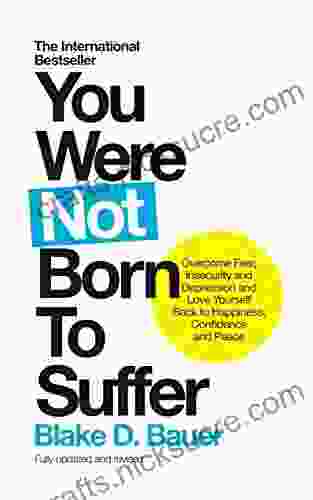Theorizing Practices In Households, Communities, And Classrooms: A Comprehensive Guide

Theorizing practices in households, communities, and classrooms is a complex and challenging task. However, it is essential for understanding how people interact with each other and the world around them. By theorizing practices, we can gain insights into the social, cultural, and economic factors that shape our lives.
4.7 out of 5
| Language | : | English |
| File size | : | 1286 KB |
| Text-to-Speech | : | Enabled |
| Screen Reader | : | Supported |
| Enhanced typesetting | : | Enabled |
| Word Wise | : | Enabled |
| Print length | : | 320 pages |
There are many different ways to theorize practices. Some of the most common approaches include:
- Ethnography: Ethnography is the study of people in their natural settings. Ethnographers spend time observing and interacting with people in order to gain an understanding of their culture and way of life.
- Participant observation: Participant observation is a type of ethnography in which the researcher becomes a participant in the group they are studying. This allows the researcher to gain a deeper understanding of the group's culture and way of life.
- Interviewing: Interviewing is a method of collecting data from people by asking them questions. Interviews can be used to gather information about people's experiences, beliefs, and attitudes.
- Document analysis: Document analysis is the study of written or visual documents in order to gain an understanding of the past. Documents can include letters, diaries, newspapers, and photographs.
The choice of which approach to use depends on the research question being asked. Once the data has been collected, the researcher can begin to theorize practices. This involves identifying the patterns and relationships in the data and developing explanations for them.
Theorizing practices can be a difficult and time-consuming process. However, it is essential for understanding how people interact with each other and the world around them. By theorizing practices, we can gain insights into the social, cultural, and economic factors that shape our lives.
Theorizing Practices in Households
Theorizing practices in households is a complex task, as households are diverse and can vary greatly in terms of their composition, structure, and dynamics. However, there are some general themes that can be identified when theorizing practices in households.
One common theme is the division of labor within households. This refers to the way that tasks are allocated among household members based on their gender, age, and other factors. The division of labor can be a source of conflict and tension in households, as it can lead to feelings of resentment and inequality.
Another common theme is the role of gender in households. Gender roles are the expectations that society has about how men and women should behave. These roles can have a significant impact on the way that households are organized and the way that members interact with each other.
Finally, the concept of power is also important when theorizing practices in households. Power refers to the ability to influence others and get them to do what you want. Power can be exercised in a variety of ways, including through coercion, persuasion, and manipulation.
These are just a few of the themes that can be identified when theorizing practices in households. By understanding these themes, we can gain a better understanding of how households function and the factors that shape them.
Theorizing Practices in Communities
Theorizing practices in communities is also a complex task, as communities are diverse and can vary greatly in terms of their size, composition, and culture. However, there are some general themes that can be identified when theorizing practices in communities.
One common theme is the role of social networks in communities. Social networks are the connections between people in a community. These networks can provide support, information, and resources to community members. They can also be a source of conflict and tension, as people may compete for resources or status.
Another common theme is the role of institutions in communities. Institutions are organizations that provide services to community members, such as schools, hospitals, and churches. Institutions can play a vital role in shaping the culture and values of a community. They can also be a source of conflict and tension, as people may disagree about the role and function of institutions.
Finally, the concept of power is also important when theorizing practices in communities. Power refers to the ability to influence others and get them to do what you want. Power can be exercised in a variety of ways, including through coercion, persuasion, and manipulation.
These are just a few of the themes that can be identified when theorizing practices in communities. By understanding these themes, we can gain a better understanding of how communities function and the factors that shape them.
Theorizing Practices in Classrooms
Theorizing practices in classrooms is also a complex task, as classrooms are diverse and can vary greatly in terms of their size, composition, and culture. However, there are some general themes that can be identified when theorizing practices in classrooms.
One common theme is the role of the teacher in the classroom. The teacher is responsible for creating a learning environment that is conducive to student learning. The teacher also plays a role in shaping the culture and values of the classroom.
Another common theme is the role of students in the classroom. Students are responsible for their own learning and for participating in the classroom community. Students also play a role in shaping the culture and values of the classroom.
Finally, the concept of power is also important when theorizing practices in classrooms. Power refers to the ability to influence others and get them to do what you want. Power can be exercised in a variety of ways, including through coercion, persuasion, and manipulation.
These are just a few of the themes that can be identified when theorizing practices in classrooms. By understanding these themes, we can gain a better understanding of how classrooms function and the factors that shape them.
Theorizing practices in households, communities, and classrooms is a complex and challenging task. However, it is essential for understanding how people interact with each other and the world around them. By theorizing practices, we can gain insights into the social, cultural, and economic factors that shape our lives.
4.7 out of 5
| Language | : | English |
| File size | : | 1286 KB |
| Text-to-Speech | : | Enabled |
| Screen Reader | : | Supported |
| Enhanced typesetting | : | Enabled |
| Word Wise | : | Enabled |
| Print length | : | 320 pages |
Do you want to contribute by writing guest posts on this blog?
Please contact us and send us a resume of previous articles that you have written.
 Fiction
Fiction Non Fiction
Non Fiction Romance
Romance Mystery
Mystery Thriller
Thriller SciFi
SciFi Fantasy
Fantasy Horror
Horror Biography
Biography Selfhelp
Selfhelp Business
Business History
History Classics
Classics Poetry
Poetry Childrens
Childrens Young Adult
Young Adult Educational
Educational Cooking
Cooking Travel
Travel Lifestyle
Lifestyle Spirituality
Spirituality Health
Health Fitness
Fitness Technology
Technology Science
Science Arts
Arts Crafts
Crafts DIY
DIY Gardening
Gardening Petcare
Petcare Jennifer Finney Boylan
Jennifer Finney Boylan Lynn Alley
Lynn Alley Anthony Wilkenson
Anthony Wilkenson Abigail Owen
Abigail Owen David G Brown
David G Brown Abdelkader Nouiri
Abdelkader Nouiri Aiden Thomas
Aiden Thomas Natasha Preston
Natasha Preston Lavinia Collins
Lavinia Collins Rick Sekuloski
Rick Sekuloski Ed Engle
Ed Engle Jon Butterworth
Jon Butterworth Cosmas Inyang
Cosmas Inyang Christopher Black
Christopher Black Arthur Turrell
Arthur Turrell Marie Cirano
Marie Cirano John Caig
John Caig Drew Harris
Drew Harris Christopher S Stewart
Christopher S Stewart Adam Chandler
Adam Chandler O Thomas Gift
O Thomas Gift Tom Migdalski
Tom Migdalski Richard Langer
Richard Langer Rolf Mowatt Larssen
Rolf Mowatt Larssen Jane Gross
Jane Gross Kevin A Morrison
Kevin A Morrison Axie Oh
Axie Oh Richard Martin
Richard Martin Alifya And Umesh Mohite
Alifya And Umesh Mohite Liza Angela
Liza Angela Eugene H Merrill
Eugene H Merrill James Heberd
James Heberd Fumio Sasaki
Fumio Sasaki Michel Roy
Michel Roy G Bailey
G Bailey Claire Santry
Claire Santry Michael N Mitchell
Michael N Mitchell Kaylynn Flanders
Kaylynn Flanders Abhishek V R
Abhishek V R Gary Sakuma
Gary Sakuma Claire Ahn
Claire Ahn Daniel Carter Beard
Daniel Carter Beard Tali Edut
Tali Edut Man Kam Lo
Man Kam Lo Lillian Cumic
Lillian Cumic Uri Bram
Uri Bram David Warriner
David Warriner Dan Werb
Dan Werb Ron Hotchkiss
Ron Hotchkiss Jasna Tuta
Jasna Tuta Ann Mariah Cook
Ann Mariah Cook Eze Ugbor
Eze Ugbor Richard Lighthouse
Richard Lighthouse Annie Nicholas
Annie Nicholas Douglas W Hubbard
Douglas W Hubbard Fred Fields
Fred Fields Timothy Phelps
Timothy Phelps Adam Freeman
Adam Freeman Sophie Mccartney
Sophie Mccartney William Hamilton Gibson
William Hamilton Gibson Monica Sorrenson
Monica Sorrenson Peter David
Peter David Tom Mccarthy
Tom Mccarthy Lucio Russo
Lucio Russo Abigail Hing Wen
Abigail Hing Wen Dawson Church
Dawson Church Lisa Latimer
Lisa Latimer Phil Boyle
Phil Boyle Daphne Poltz
Daphne Poltz Lenyfer Garrido
Lenyfer Garrido Maureen Duffin Ward
Maureen Duffin Ward Michelle Obama
Michelle Obama David Simon
David Simon Christian Beamish
Christian Beamish E P Marcellin
E P Marcellin Cornel West
Cornel West Chashiree M
Chashiree M Steve Roper
Steve Roper Abu Mussab Wajdi Akkari
Abu Mussab Wajdi Akkari Adam Boduch
Adam Boduch Ken Springer
Ken Springer Collins Kids
Collins Kids Aaron J Perry
Aaron J Perry Paula Deen
Paula Deen Garo Yepremian
Garo Yepremian Roman Dial
Roman Dial Charles H Kraft
Charles H Kraft Ronald Kaine
Ronald Kaine Mary Wong
Mary Wong Achref Hassini
Achref Hassini Laura Gao
Laura Gao Randi Hutter Epstein
Randi Hutter Epstein Al Desetta
Al Desetta Pearson Education
Pearson Education Ian Mcleod
Ian Mcleod Mark Strom
Mark Strom J Robert King
J Robert King Aaron Mccargo
Aaron Mccargo Adam Frank
Adam Frank Stephen Gray
Stephen Gray Laurie Chaikind Mcnulty Lcsw C
Laurie Chaikind Mcnulty Lcsw C Teresa Finney
Teresa Finney Martha Gellhorn
Martha Gellhorn David Winner
David Winner George John Romanes
George John Romanes Sally Clarkson
Sally Clarkson Brian Greene
Brian Greene George J Hademenos
George J Hademenos Abigail Melton
Abigail Melton Conrad Bauer
Conrad Bauer James Surowiecki
James Surowiecki Chaz Scoggins
Chaz Scoggins Gladys Chepkirui Ngetich
Gladys Chepkirui Ngetich Jim Willis
Jim Willis Seth Kugel
Seth Kugel Steve Griffith
Steve Griffith Kenn Kaufman
Kenn Kaufman Jack Cavanaugh
Jack Cavanaugh Suzanne Corkin
Suzanne Corkin Randall Hyde
Randall Hyde Gayle Forman
Gayle Forman Domenica Marchetti
Domenica Marchetti Michael Baigent
Michael Baigent Barbara Decker
Barbara Decker Clara Shaper
Clara Shaper Kemi Iwalesin
Kemi Iwalesin Achim K Krull
Achim K Krull Achille Rubini
Achille Rubini Leigh Bardugo
Leigh Bardugo Abraham Silberschatz
Abraham Silberschatz Tim Larkin
Tim Larkin Lisa Robertson
Lisa Robertson Erika Fatland
Erika Fatland Maya Lang
Maya Lang Adam H Balen
Adam H Balen Louise Pickford
Louise Pickford Christophe Jaffrelot
Christophe Jaffrelot Rose Ann Hudson
Rose Ann Hudson Jason Korol
Jason Korol Sorin Dumitrascu
Sorin Dumitrascu P S Page
P S Page Garrett Mcnamara
Garrett Mcnamara Sasha Abramsky
Sasha Abramsky Carley Roney
Carley Roney Carl Vernon
Carl Vernon Charles C Patrick
Charles C Patrick William Deresiewicz
William Deresiewicz Tom Jackson
Tom Jackson Justin Driver
Justin Driver Jacob Neumann
Jacob Neumann Christopher Monahan
Christopher Monahan Jeremy Roenick
Jeremy Roenick Felice Fox
Felice Fox Abigail Tucker
Abigail Tucker Dan Morris
Dan Morris Abigail Hair
Abigail Hair Scott Shaw
Scott Shaw Robert Reid
Robert Reid Israel Finkelstein
Israel Finkelstein Chuck Callaway
Chuck Callaway Rob Gray
Rob Gray Melodie M Davis
Melodie M Davis Katie Lear
Katie Lear Jimmy Houston
Jimmy Houston Laurence Steinberg
Laurence Steinberg Michael Gruenbaum
Michael Gruenbaum Hans C Ohanian
Hans C Ohanian Dr Robert Pasahow
Dr Robert Pasahow Heather Lynn
Heather Lynn Michelle Hodkin
Michelle Hodkin Ada Calhoun
Ada Calhoun Susan Walton
Susan Walton Todd Graves
Todd Graves Emily J Taylor
Emily J Taylor Barbara A Lewis
Barbara A Lewis Virginia Smith Harvey
Virginia Smith Harvey Programming Languages Academy
Programming Languages Academy Rachel Caine
Rachel Caine Vivian Gussin Paley
Vivian Gussin Paley Ben Cohen
Ben Cohen Corinne Andrews
Corinne Andrews Steve Rosenberg
Steve Rosenberg Brandon Neice
Brandon Neice Winifred Conkling
Winifred Conkling Kathy Koch Phd
Kathy Koch Phd Ron Jones
Ron Jones Adam Lashinsky
Adam Lashinsky Jeremy Paxman
Jeremy Paxman Papus
Papus Jennifer Shannon
Jennifer Shannon Tom Rosenbauer
Tom Rosenbauer Aaron James
Aaron James Judi Kesselman Turkel
Judi Kesselman Turkel Aaron Reed Msn Crna
Aaron Reed Msn Crna Abby Haight
Abby Haight Arthur Atchabahian
Arthur Atchabahian Meg Keys
Meg Keys Cassandra Eason
Cassandra Eason Kate Rope
Kate Rope Benjamin Roberts
Benjamin Roberts Richard Sattora
Richard Sattora Carl Jones
Carl Jones Michael Johnson
Michael Johnson Gil Capps
Gil Capps Betsy Miller
Betsy Miller Aaron Blight
Aaron Blight Megan Lane
Megan Lane Pamela Druckerman
Pamela Druckerman Sam J Miller
Sam J Miller Susan Zeppieri
Susan Zeppieri Tim Jarvis
Tim Jarvis Brian Hoggard
Brian Hoggard Colin Hunter
Colin Hunter Abby Sunderland
Abby Sunderland Paul Chiasson
Paul Chiasson T L Christianson
T L Christianson Andy Dumas
Andy Dumas Charlie Barker
Charlie Barker Kayla Cottingham
Kayla Cottingham Jennifer Greene
Jennifer Greene Andrew Skurka
Andrew Skurka Pat Chargot
Pat Chargot Marlene Wagman Geller
Marlene Wagman Geller Lucy Letcher
Lucy Letcher Harley Rustad
Harley Rustad Mikki Daughtry
Mikki Daughtry Kel Carpenter
Kel Carpenter Abigail Alling
Abigail Alling Lisa M Schab
Lisa M Schab Lois G Schwoerer
Lois G Schwoerer Rory Miller
Rory Miller Glen Finland
Glen Finland Adam J Cox
Adam J Cox Jim Morekis
Jim Morekis Jennifer L Hunt
Jennifer L Hunt Richelle Mead
Richelle Mead Gavin D J Harper
Gavin D J Harper Adam Kimelman
Adam Kimelman Jenny Han
Jenny Han Asato Asato
Asato Asato Chris Jericho
Chris Jericho Scott Carney
Scott Carney Bobby Reyes
Bobby Reyes Stephen Abbott
Stephen Abbott Lisa M Given
Lisa M Given Jack Moore
Jack Moore John Kean
John Kean Alan Robertson
Alan Robertson Jay Ruud
Jay Ruud Zoe Hamlet Silva
Zoe Hamlet Silva Chella Quint
Chella Quint John D Gordon
John D Gordon Shuai Huang
Shuai Huang Devika Primic
Devika Primic Thomas Wilson
Thomas Wilson Rachael Ray
Rachael Ray Al Baird
Al Baird Sarah Luddington
Sarah Luddington Aaron Mahnke
Aaron Mahnke Gloria Atanmo
Gloria Atanmo Renda Dionne Madrigal
Renda Dionne Madrigal Al Barkow
Al Barkow Sissy Goff
Sissy Goff Vince Kotchian
Vince Kotchian Emma Crewe
Emma Crewe Peter Harrison
Peter Harrison Lisa Heffernan
Lisa Heffernan Taylan Hoca
Taylan Hoca An American Citizen
An American Citizen John Hancock
John Hancock Kim Gosselin
Kim Gosselin M J Parisian
M J Parisian Adam Enaz
Adam Enaz Amby Burfoot
Amby Burfoot Jeff Bauman
Jeff Bauman Matt Warshaw
Matt Warshaw Jeremy Miles
Jeremy Miles Stefan Ball
Stefan Ball Dick Edie
Dick Edie Katrina Kahler
Katrina Kahler Chiara Giuliani
Chiara Giuliani Helen Scales
Helen Scales Abbas Kazerooni
Abbas Kazerooni Charles Fernyhough
Charles Fernyhough Dan Shideler
Dan Shideler Paul Schneider
Paul Schneider Vikas Kakwani
Vikas Kakwani Marc Dando
Marc Dando Marvin Valerie Georgia
Marvin Valerie Georgia Chris Worfolk
Chris Worfolk Sheldon Axler
Sheldon Axler Lin Wellford
Lin Wellford John Taylor
John Taylor Phong Thong Dang
Phong Thong Dang Al Yellon
Al Yellon Adam J Rosh
Adam J Rosh Tamora Pierce
Tamora Pierce Rania Abouzeid
Rania Abouzeid Barbara Fox
Barbara Fox Kit Bauman
Kit Bauman Adam Galinsky
Adam Galinsky Scott Butler
Scott Butler Og Mandino
Og Mandino Aaron Graves
Aaron Graves Iain Highfield
Iain Highfield Abigail Pogrebin
Abigail Pogrebin Casey Robson
Casey Robson Randy Walker
Randy Walker Scott Meyers
Scott Meyers Baba Ifa Karade
Baba Ifa Karade David Lipsky
David Lipsky Stephen A Mitchell
Stephen A Mitchell Sarah Moore
Sarah Moore Gregor Clark
Gregor Clark R L Stine
R L Stine Phil Gaimon
Phil Gaimon Barry Robinson
Barry Robinson Aliza Green
Aliza Green Steve Mcmenamin
Steve Mcmenamin Carolyn Jessop
Carolyn Jessop Miriam Forman Brunell
Miriam Forman Brunell Sean Lewis
Sean Lewis Sheila Lamb
Sheila Lamb Genius Reads
Genius Reads Goodman Publishing
Goodman Publishing Lynn E Ponton
Lynn E Ponton Brad Brewer
Brad Brewer T L Lowery
T L Lowery Linford Stutzman
Linford Stutzman Nick Holt
Nick Holt Thubten Yeshe
Thubten Yeshe David Rensin
David Rensin Bill Mckibben
Bill Mckibben Neil Oliver
Neil Oliver Adam Becker
Adam Becker Emily Suzanne Clark
Emily Suzanne Clark Larry Carpenter
Larry Carpenter Michael L Bloomquist
Michael L Bloomquist Sharon Boyd
Sharon Boyd Eduardo Duran
Eduardo Duran Robert Fritz
Robert Fritz Martha C Nussbaum
Martha C Nussbaum Ken Retallic
Ken Retallic Tony Soper
Tony Soper Irene Lewis Mccormick
Irene Lewis Mccormick Sean Mcmanus
Sean Mcmanus Christopher Knight
Christopher Knight Abridged Ed Edition Kindle Edition
Abridged Ed Edition Kindle Edition Horace Kephart
Horace Kephart Adam Lazarus
Adam Lazarus Xiuhtezcatl Martinez
Xiuhtezcatl Martinez Sherri Granato
Sherri Granato Alvin Alexander
Alvin Alexander Alicia C Simpson
Alicia C Simpson Michael Egan
Michael Egan Andy Couturier
Andy Couturier Lindsey Ellison
Lindsey Ellison Aaron Oster
Aaron Oster Vivienne Sanders
Vivienne Sanders Blake D Bauer
Blake D Bauer Adam Koch
Adam Koch Miranda Kenneally
Miranda Kenneally Lisa Pineda
Lisa Pineda Irakli Makharadze
Irakli Makharadze Stephen R Lawhead
Stephen R Lawhead Erik Scott De Bie
Erik Scott De Bie Terry Palechuk
Terry Palechuk Carmen Moreno
Carmen Moreno Paul Mclerran
Paul Mclerran Robert Allans
Robert Allans Norton Juster
Norton Juster Caroline Kaufman
Caroline Kaufman Dmv Test Bank
Dmv Test Bank Bathroom Readers Institute
Bathroom Readers Institute Stephen Brennan
Stephen Brennan Tomos Forrest
Tomos Forrest Bill Loguidice
Bill Loguidice Jessica Hepburn
Jessica Hepburn Gisle Solhaug
Gisle Solhaug Walter Browder
Walter Browder Reinette Biggs
Reinette Biggs Scott Parsons
Scott Parsons Michael Crawley
Michael Crawley Rex Ogle
Rex Ogle Ian Davis
Ian Davis Brian L Gorman
Brian L Gorman Ryan Smithson
Ryan Smithson Stephanie Zeiss
Stephanie Zeiss Amelia Whitmore
Amelia Whitmore Curt Lader
Curt Lader Amber Domoradzki
Amber Domoradzki Stacy Eaton
Stacy Eaton Deborah Madison
Deborah Madison Peter Sagal
Peter Sagal Tomi Adeyemi
Tomi Adeyemi Elena Aguilar
Elena Aguilar Abby Hafer
Abby Hafer Barbara Natterson Horowitz
Barbara Natterson Horowitz Aaron Lee Johnson
Aaron Lee Johnson Helen C Rountree
Helen C Rountree Catherine Ryan Hyde
Catherine Ryan Hyde Gail Buckland
Gail Buckland Sarah K L Wilson
Sarah K L Wilson Wayne Westcott
Wayne Westcott Abinash Das
Abinash Das Ned Johnson
Ned Johnson Charles Thomas Jr
Charles Thomas Jr Winston Chang
Winston Chang Rosie Pope
Rosie Pope Jay Dawes
Jay Dawes Alexander Nehamas
Alexander Nehamas Jennifer Ackerman
Jennifer Ackerman Maxine Levaren
Maxine Levaren Abbey Curran
Abbey Curran Sarah Maslin Nir
Sarah Maslin Nir Brigitte Jordan
Brigitte Jordan Hillary Allen
Hillary Allen Andrew Campanella
Andrew Campanella Matt Owens
Matt Owens Joy Neighbors
Joy Neighbors Mark Januszewski
Mark Januszewski Gerald A Voorhees
Gerald A Voorhees Charles L Byrne
Charles L Byrne Sheri Van Dijk
Sheri Van Dijk Ann Frederick
Ann Frederick Stuart Firestein
Stuart Firestein Lee Sandlin
Lee Sandlin Nancy Mohrbacher
Nancy Mohrbacher Kirk Bailey
Kirk Bailey Moon Ho Jung
Moon Ho Jung Agustin Fuentes
Agustin Fuentes Christopher Pike
Christopher Pike Linda Sarris
Linda Sarris Emily K Neuburger
Emily K Neuburger Christina Hoff Sommers
Christina Hoff Sommers Abby Mcallister
Abby Mcallister Adam D Scott
Adam D Scott Aaron Reed
Aaron Reed Craig Timberg
Craig Timberg Edward J Larson
Edward J Larson Laura Peyton Roberts
Laura Peyton Roberts Joe Simpson
Joe Simpson Andrea M Nelson Royes
Andrea M Nelson Royes David Feddes
David Feddes Debbie Ford
Debbie Ford Zoyla Arana
Zoyla Arana Shari Eskenas
Shari Eskenas Allan Sand
Allan Sand Abdul Foster
Abdul Foster Gerry Donohue
Gerry Donohue Farah Shabazz Ii
Farah Shabazz Ii Jeremy Shinewald
Jeremy Shinewald Amber Fox
Amber Fox Beth Newell
Beth Newell Steven Alan Childress
Steven Alan Childress Shannon Hale
Shannon Hale Barry Dainton
Barry Dainton Debbie Elicksen
Debbie Elicksen Lynn Rush
Lynn Rush Ilsa J Bick
Ilsa J Bick Ariana Eagleton
Ariana Eagleton Stephanie Puglisi
Stephanie Puglisi Kristin Berry
Kristin Berry Abigail Marshall
Abigail Marshall Achusim Michael
Achusim Michael Elisabetta Viggiani
Elisabetta Viggiani Ralph Villiger
Ralph Villiger Mary Roach
Mary Roach Aaron Hahn
Aaron Hahn Adam Benshea
Adam Benshea Abbi Glines
Abbi Glines Laura Ray
Laura Ray Deborah Beck Busis
Deborah Beck Busis Bruce Van Brunt
Bruce Van Brunt Alicia Silverstone
Alicia Silverstone Louise Thaden
Louise Thaden Laura Sebastian
Laura Sebastian Sam Jarman
Sam Jarman Jessie Hartland
Jessie Hartland Adam Braus
Adam Braus Darrin Bergman
Darrin Bergman
Light bulbAdvertise smarter! Our strategic ad space ensures maximum exposure. Reserve your spot today!
 Ted SimmonsFollow ·4.3k
Ted SimmonsFollow ·4.3k Thomas HardyFollow ·12.3k
Thomas HardyFollow ·12.3k Walt WhitmanFollow ·19.2k
Walt WhitmanFollow ·19.2k Gilbert CoxFollow ·8.9k
Gilbert CoxFollow ·8.9k Sam CarterFollow ·14.9k
Sam CarterFollow ·14.9k Russell MitchellFollow ·16.2k
Russell MitchellFollow ·16.2k George MartinFollow ·9k
George MartinFollow ·9k Fernando PessoaFollow ·10.4k
Fernando PessoaFollow ·10.4k

 Doug Price
Doug PriceTracing the Evolution of Modern Psychoanalytic Thought:...
Psychoanalysis, once considered a radical...

 Devin Ross
Devin RossThe Digital Role Playing Game Approaches To Digital Game...
These are just a few of the many...

 F. Scott Fitzgerald
F. Scott FitzgeraldHistory from Things: Essays on Material Culture
History from Things:...

 Percy Bysshe Shelley
Percy Bysshe ShelleyThe Priest Lake Girl and the Cabin of Love: A True Story...
The Murder On...

 Isaiah Powell
Isaiah PowellThe Golf Mystic: Dick Edie's Unconventional Approach to...
In the annals of golf history, the name Dick...
4.7 out of 5
| Language | : | English |
| File size | : | 1286 KB |
| Text-to-Speech | : | Enabled |
| Screen Reader | : | Supported |
| Enhanced typesetting | : | Enabled |
| Word Wise | : | Enabled |
| Print length | : | 320 pages |














